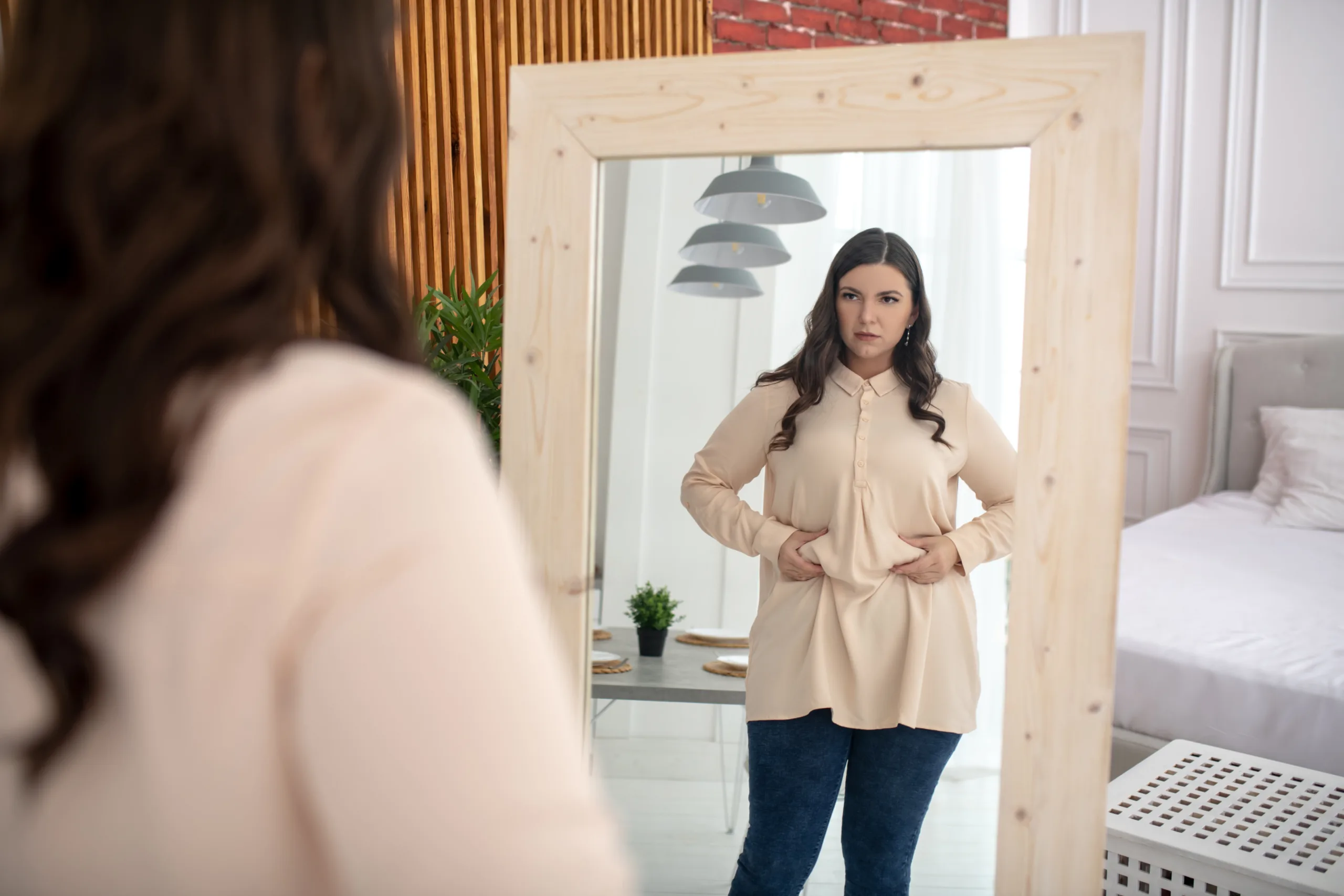
Romantic relationships come with many challenges as each person works their way through life. The beautiful part is being able to face these challenges together as a team, but the hard part is sitting and watching your partner deal with mental health challenges.
One of these challenges includes struggling with body image and self-esteem. It can be hard to know what signs point to this, but knowing them can help you talk with your partner.
Is my partner obsessed with their body image?
In today’s society, the focus on physical appearance has reached unprecedented highs. This obsessive focus on outward appearance can sometimes lead men and women to become hyper-focused on their body image, impacting their mental health and relationships.
If you suspect that your partner may be obsessively concerned with their physical appearance, it is important to recognize the signs and understand the underlying issues so that you can help them pursue a healthy lifestyle.
Continuous self-criticism
Constant self-criticism is one of the most telling signs of a hyper-focus on body image. If your partner frequently comments negatively about their weight, skin, hair, or any other aspect of their body, it may indicate they are struggling with something deeper than their appearance.
Constant self-criticism is often indicative of an internal struggle with self-esteem and body dysmorphia. If you notice these behaviors repeatedly, it may be worth sitting down and conversing with your partner.
An obsessive relationship with diet and exercise
Another red flag is an unhealthy focus on diet and exercise. While maintaining a healthy lifestyle is essential, an extreme preoccupation with food intake, calorie counting and rigorous exercise routines can signal an unhealthy relationship with one’s body.
This could be a significant concern if your partner’s life seems to revolve around their diet and workout schedule to the detriment of other activities and relationships. Additionally, certain eating habits, including strictly avoiding certain foods or compensating for caloric intake with exercise, could indicate a deeper issue.
Avoiding social events
People hyper-focused on their body image may avoid social situations where they feel their appearance will be noticed or scrutinized. This can include skipping events, avoiding photographs or constantly seeking reassurance about their looks.
Such behavior often stems from a fear of judgment and a belief that their worth is tied to their physical appearance.
Frequent comparison
If your partner frequently negatively compares their appearance to others, it can be another sign of an obsession with body image. Social media can worsen this issue, often presenting unrealistic and curated images.
Regardless, these comparisons can lead to feelings of inadequacy and perpetually keep one in a cycle of feeling bad about their appearance.
Going to extreme lengths to change their appearance
Seeking out drastic measures to alter their appearance, including using an excessive amount of cosmetic products, frequent/unnecessary cosmetic surgeries, steroid use, or extreme dieting methods, can be a clear indication that your partner has deeply ingrained self-esteem concerns.
While it is natural for people to look their best, resorting to drastic and potentially harmful measures to achieve an idealized standard should indicate that a desire to look presentable has turned obsessive and unhealthy.
Emotional stress as a result of appearance
Experiencing deep emotional stress as a result of dissatisfaction with one’s appearance may indicate an unhealthy preoccupation with body image or could indicate a need for intervention to help build self-esteem.
Emotional distress can manifest as anxiety, depression, or mood swings, especially when they perceive that they do not meet standards of beauty — be these the standards of society or their standards. This emotional turmoil can affect their overall well-being and strain their relationship.
Preoccupation with minor flaws
Individuals who struggle with body image often fixate on minor or imagined flaws. This behavior is characteristic of body dysmorphic disorder (BDD), “a mental health condition in which you can’t stop thinking about one or more perceived defects or flaws in your appearance — a flaw that appears minor or can’t be seen by others. But you may feel so embarrassed, ashamed and anxious that you may avoid many social situations.”
If your partner spends an excessive amount of time scrutinizing, drawing attention to and attempting to remedy minor flaws, it may be a sign of a deeper issue.
Needing repetitive validation
A partner who constantly seeks validation about their appearance may be struggling with body image. They might frequently ask questions like, “Do I look okay?” or “Have I gained weight?” and rely heavily on your reassurance to feel better about themselves. This need for constant validation can indicate a lack of self-confidence and an unhealthy preoccupation with how others perceive them.
Changes in eating habits
Sudden or extreme changes in eating habits can also be a sign of an obsession with body image. This can include restrictive eating, binge eating, or the use of diet pills and supplements. Such behaviors are often driven by a desire to control body weight and shape, but they can have profound health implications if left unaddressed.
Changes in daily routine
If your partner suddenly and dramatically changes their daily routines to prioritize their appearance, this could also be a sign of obsession. Changes might include spending excessive time getting ready, checking their reflection frequently, or rearranging their schedule to accommodate beauty treatments and workouts.
These behaviors can disrupt their daily life, feed into obsessive behaviors and, ultimately, indicate an unhealthy fixation on their body image.
Ready to address the root cause?
If your partner shows any of these signs, it might be time to have a loving conversation and let them know you see their struggle. They may need someone like you to tell them you notice and that you’re there to help.
To help get started towards health and healing, contact Seeds of Hope today by calling 610-644-6464 or filling out an online contact form to learn more.


